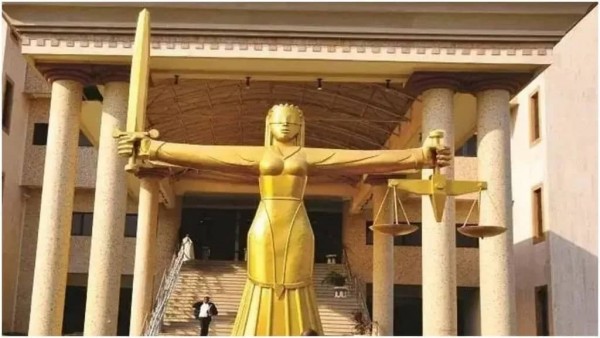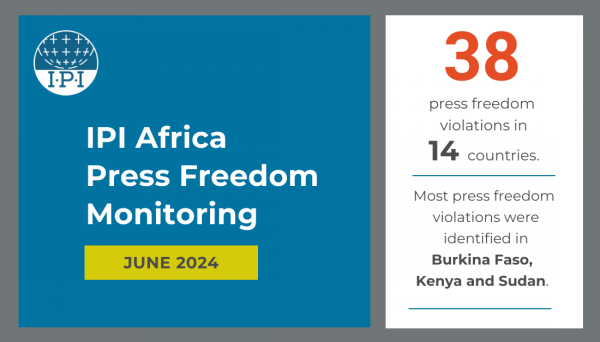It was an alarming start to the year for press freedom in Africa, as two journalists were killed in the month of January — in Cameroon and Rwanda, respectively. These killings put a spotlight on the deteriorating conditions for journalists across the continent, as shown by IPI data on press freedom threats and violations.
Cameroonian journalist Martinez Zogo, the director of Radio Amplitude, was kidnapped on January 17 and was found brutally murdered several days later. He reported on government malpractice, the embezzlement of public funds, and corruption. A trade union of independent journalists in Cameroon had condemned Zogo’s kidnapping and called on authorities to act quickly to investigate and ensure his safety. Four days later, Zogo was found murdered with signs of torture. His killing highlights the already troubled press freedom environment in Cameroon, where journalists face growing pressure and attacks and operate in a climate of fear and self-censorship.
Also in January, Rwandan journalist John Williams Ntwali, an editor of the privately-owned newspaper The Chronicles, was killed in what authorities have claimed was a traffic accident. Williams reported on issues of human rights abuses in Rwanda, including arrests of opposition figures, deaths of critics, and forced evictions and advocacy. The official version of Williams Ntwali’s death has been met with huge skepticism by human rights defenders in Rwanda, which has been accused of targeting critics and political dissidents as well as journalists.
These incidents were among the more than 70 press freedom threats and violations that occurred in 14 countries in Africa this January, according to IPI data — a significant increase in the number of incidents documented by IPI in previous months. 30 of these incidents involved male journalists and 7 involved women journalists. According to IPI data, state actors — such as state security agents or police — were involved in a vast majority of these incidents.
The highest number of incidents were recorded in Zimbabwe in January after at least 20 journalists were barred from covering the court hearing of activists who had been arrested for participating in a public protest. In Ethiopia, authorities banned 15 journalists from working in the country, including a BBC and Voice of America journalist.
IPI monitors and collects data on press freedom violations in Africa using a standardized methodology that categorizes violations across the following main categories: physical, verbal or online attacks; arrests and charges against journalists; surveillance of journalists; cases of censorship; laws and regulations that restrict the press freedom; and restriction on access to information. Data are further disaggregated by gender. Our monitoring and data collection activities are part of IPI’s wider Africa programme, which aims to defend press freedom and the safety of journalists in sub-Saharan Africa.



